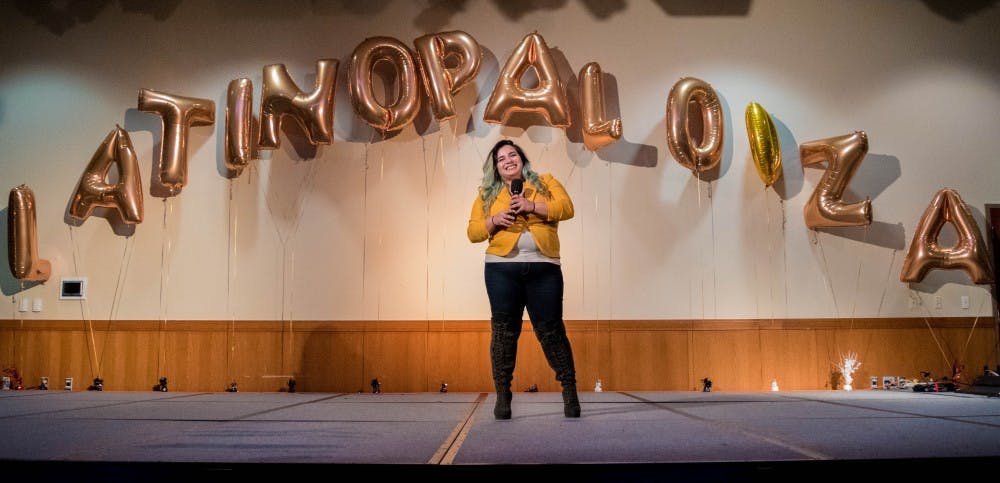Starting a conversation about diversity has been a big focus for organizations on campus. Panels and university-sanctioned events, such as Unity Week, have welcomed the discussion of diversity with open arms.
Latinopalooza is one of those events. The annual talent show brings culture to students in a different form. Students like LSU secretary Ashley Caceres are able to showcase their heritage while doing something they enjoy.
"I’m not always around people that are going to understand my cultural references," Caceres said. "But to be able to just for a moment be able to be like, ‘Hey, here. I’m here. I speak this language, which I love this singer. I love what these songs are about and so here you go, this is something I hope you enjoy.'"
Caceres began singing in middle school when a teacher mentioned the formation of a new choir group. Despite being involved in choir throughout middle and high school, she has just now began to embrace her culture in her performances.
"I only ever sang traditional pieces that weren’t necessarily related to my culture,” Caceres said. "Now, I’m able to actually sing and represent that side of me."
Similar to Caceres, Victoria Voelkel found that her culture wasn't fully represented in her hometown, which led her to make assumptions about other cultures.
“I remember in my hometown, I wasn’t close-minded per se, but I definitely just had a lot of assumptions about cultures especially that weren’t my own,” Voelkel said. “I definitely think that coming here and surrounding myself with the people I surround myself with, it’s helping me see that not everything is about the way that my life is shaped."
Even though both Caceres and Voelkel share a similar culture, they showcased it differently in their performances.
Caceres chooses to perform her songs in Spanish, and for the past couple of years, her songs have been by Selena Quintanilla. Voelkel, on the other hand, chooses to perform in English — a choice that she believes shouldn't define her performance.
"I identify as a Latina, so just because I’m a Latina woman, it doesn’t mean that I sing songs in Spanish," Voelkel said. "It doesn’t mean that I sing a certain type of genre of music. So I think that is one way that I can showcase not only that we’re a diverse campus, but that even that each community is diverse in it of itself.”





